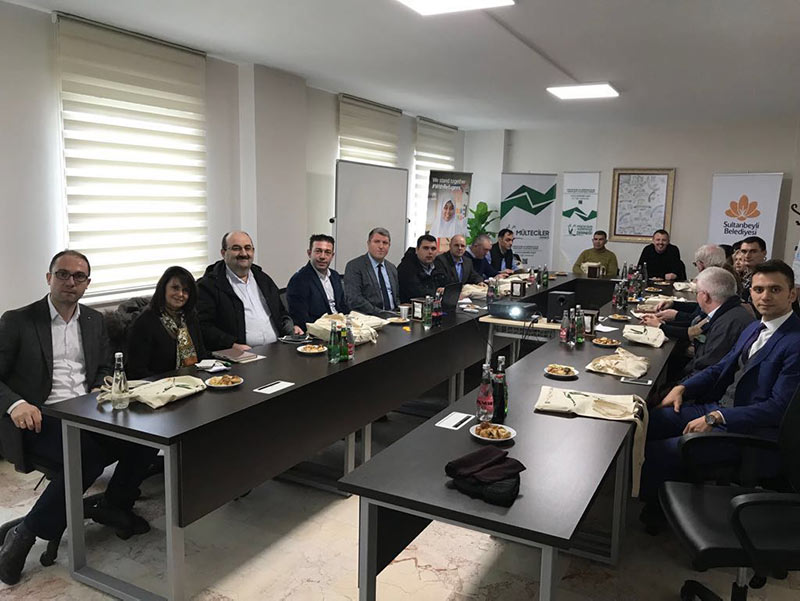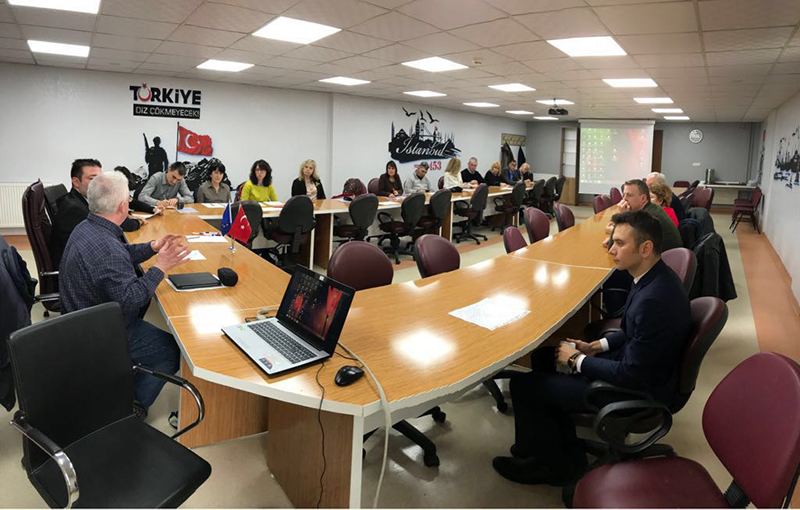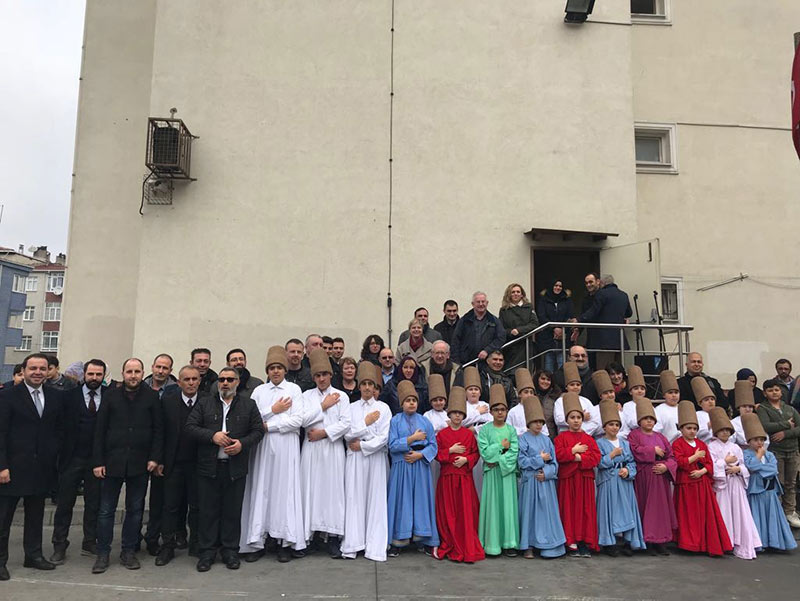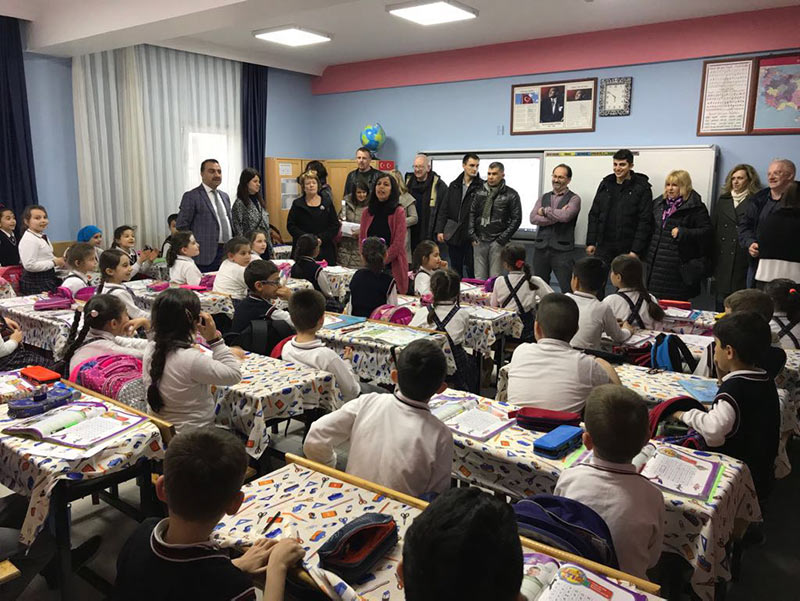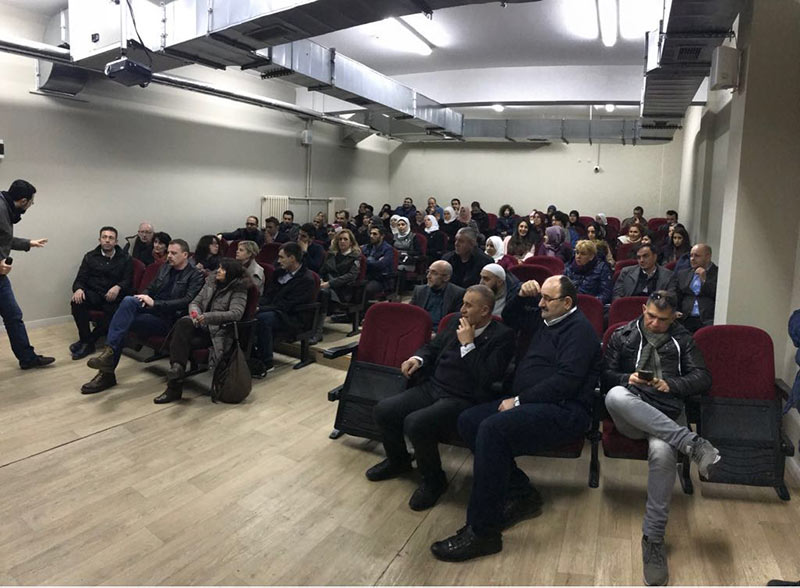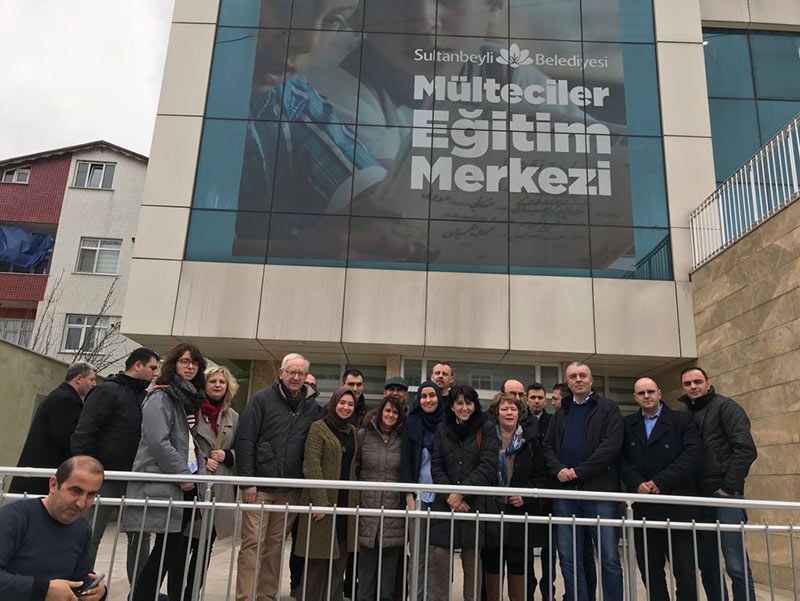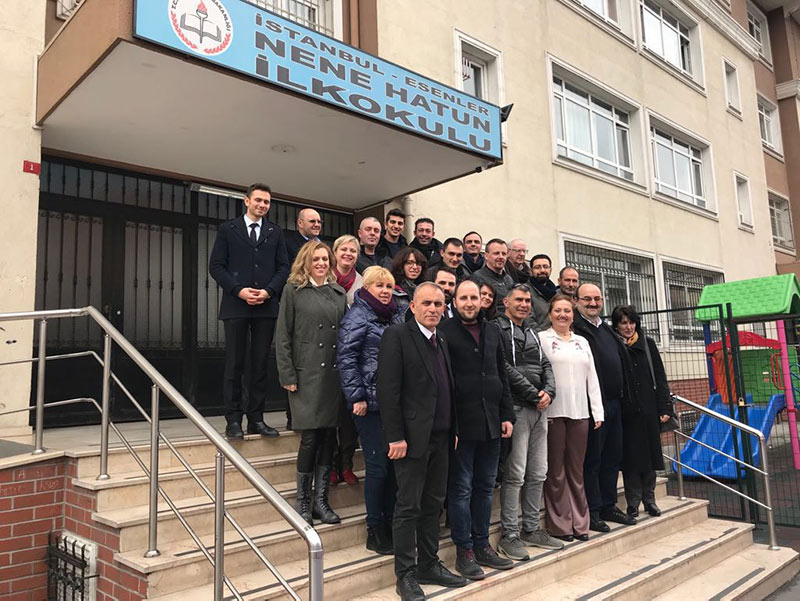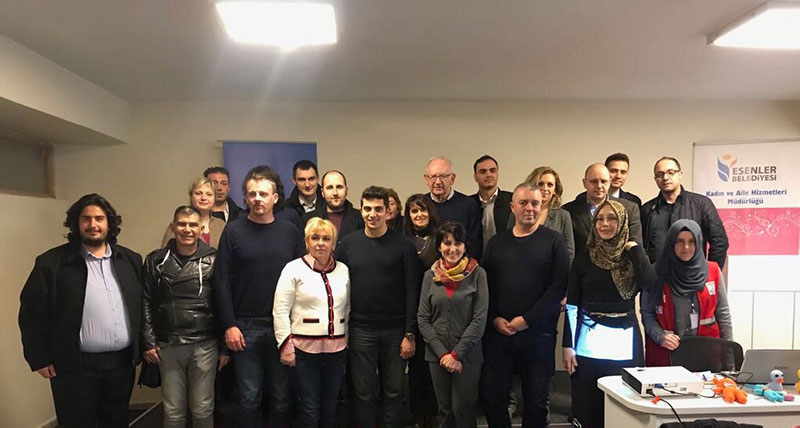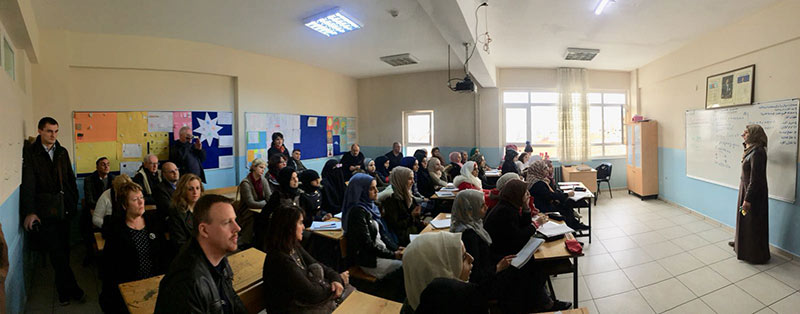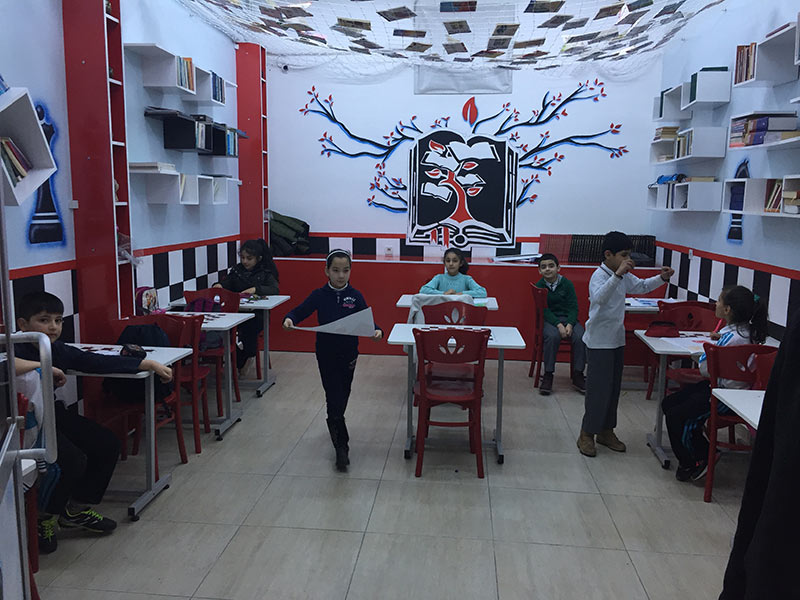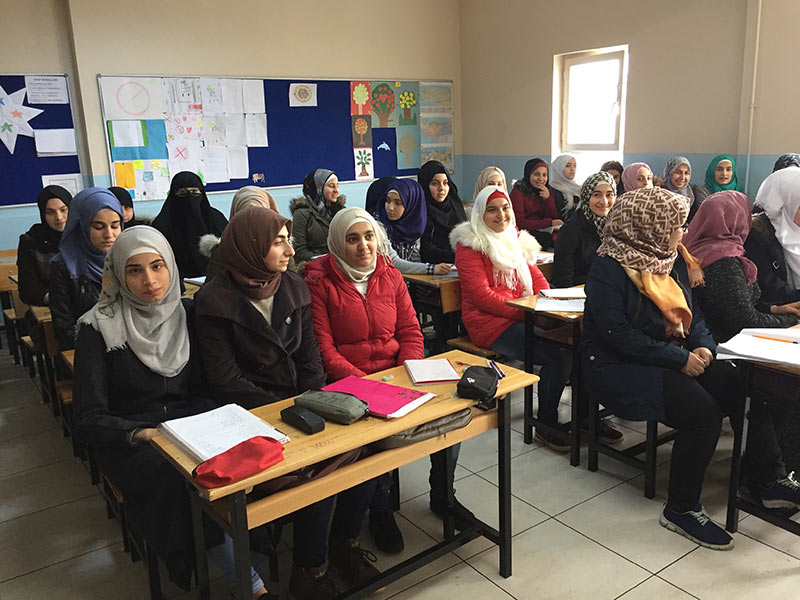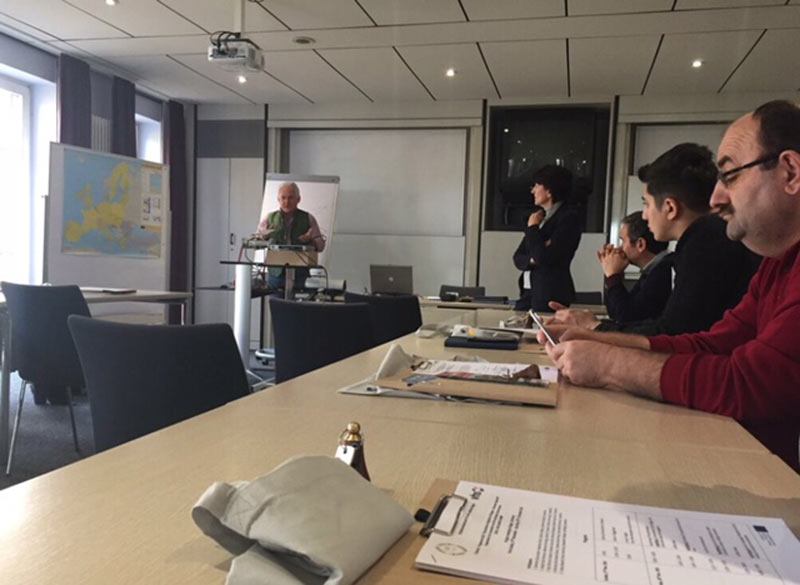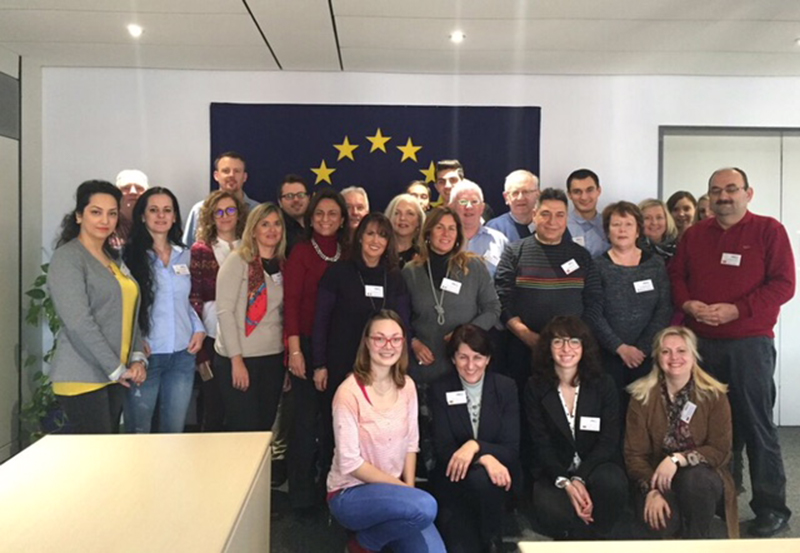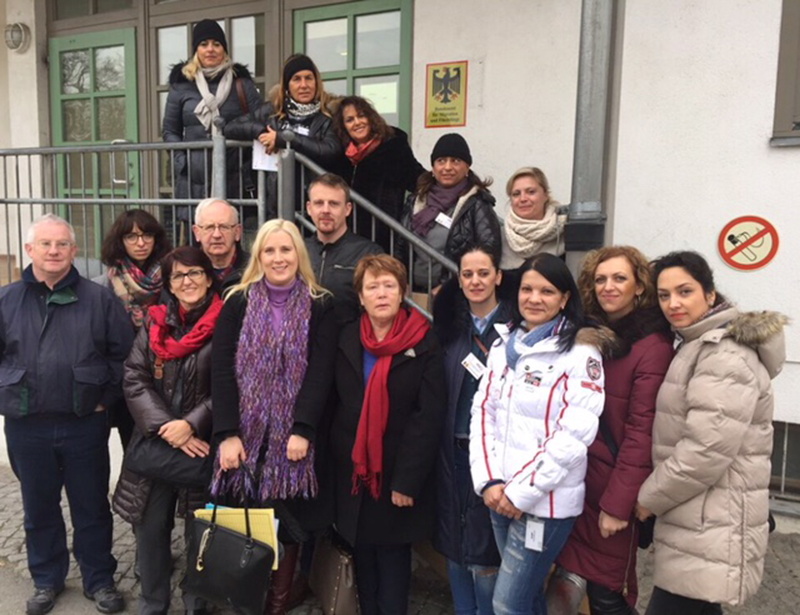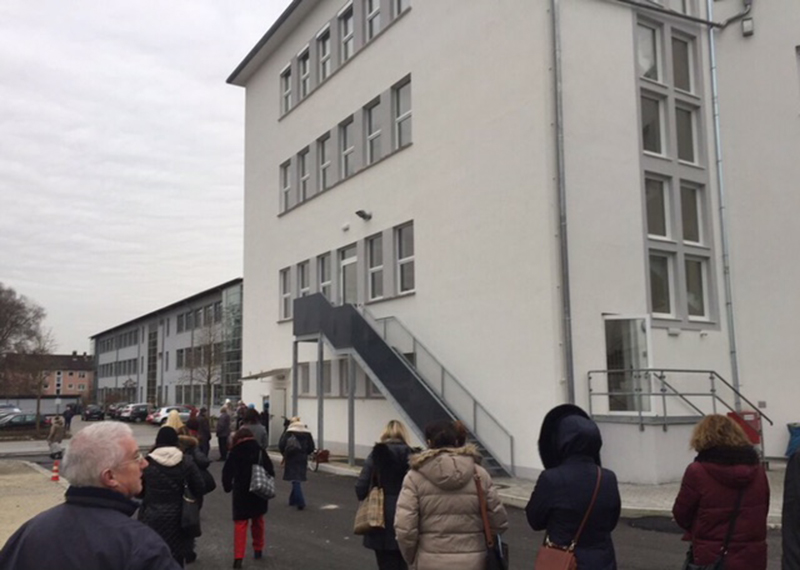In many respects Turkey was the ideal location for the final joint staff training event as the number of refugees in Turkey is particularly high and as a consequence a wide variety of measures have been put in place to deal with the situation. We were also fortunate to be working with the directorate of the Esenler district as they have enthusiastically risen to the challenge of providing education for the large numbers of refugees within the district. Over the course of the training we had an opportunity to visit mixed classes with refugees in a number of Turkish schools.
At Hasip Dinçspy IO we visited the impressive classroom facilities and met with many of the children and teachers in what appeared to be a well integrated school. We also visited the Syrian child and youth integration centre. Perhaps most interesting of all was a visit to the Syrian Temporary School (GEM). Here the students are Syrian as are the majority of teachers. In many ways this is an ideal method of transition for Syrian students to the Turkish schools as it provides them with a level of familiarity in the educational environment, a familiarity that is perhaps very welcome after the trauma many of these students have been through prior to departing their home country. This trauma was amply demonstrated by two students who spoke to us. One young girl told how her father and brother had been killed in the war and that she had escaped to Turkey with her mother and sister. A young boy told us that his father was lost in Syria and that they hoped to find him after the war was over. Later the translator explained that the boy’s father had been killed but that he could not accept the fact and so always referred to his father as lost. In such difficult cases the stability of a Syrian speaking teacher, Syrian schoolbooks and the familiar Syrian curriculum can be important in providing the students with the continuity of a safe learning environment.
The counter argument to this of course is that it can slow the process of integration. Normally students will move from the Syrian school to a Turkish school after two years so it is incumbent on the teachers at the Syrian schools to try to prepare students for this move. What was very evident during the visit was the dedication and enthusiasm of the Syrian teachers. One Syrian teacher told us that “working with my students gives me purpose, energy and hope”. We also had an opportunity to see how refugee needs were met within the wider community with visits to Esenler Municipality Refugee Centre and The Human Resource Development Foundation. In the former we witnessed some of the services being provided to refugees including medical services, career services etc. The provision of a large variety of refugee services under one roof was seen as very positive as it leads to easy identification and access to refugee services. In the latter we saw some of the school books being produced for refugees and craftwork being produced by refugees.
We also engaged with other organisations working with refugees including the WALD foundation. Many of the Syrian refugees we spoke to in Turkey commented on the similarities between Turkish culture and their own, and the benefit these similarities were to integration. They seemed very aware of the fact that cultural differences were greater elsewhere in Europe and that these differences make integration a greater challenge. One of the Turkish teachers commented that the challenge was to create an educational system for Syrian people in Turkey, based on their own system, which would also serve the need for integration. He felt that this was achievable given the necessary time and resources.
Following these visits we had an opportunity for further discussion on what we had seen and a number of issues were discussed. The need to recognise the trauma that refugees had suffered prior to arriving in their host country and the ongoing effects of this trauma was very evident when talking to some of the refugee children. The importance of addressing the refugee’s health situation, both physical and mental health, is paramount. The relationship that teachers have with students and with families was commended. Indeed the relationship with the families was discussed in some detail. It was pointed out that the provision of psychological help to the refugee students needed to involve social services, the family and mediators who could speak the language of the refugees. Families are the key to student attendance at school and the need to bring mothers onboard with the education system was seen as very important. Indeed in Turkey some special classes are arranged specifically for mothers in the refugee community.
Questions were asked about controlling the quality of Syrian teachers working in Turkey but it was confirmed that all of these teachers are fully qualified within the Syrian system and that the Turkish provincial directorate checks all qualifications. These teachers are funded by UNICEF. In these schools we observed that the practical nature of course delivery was very good with many classes that allowed students to engage in project work, experiments, field trips etc. The support that Syrian teachers can give to students suffering from trauma was evident and the use of art, music and dance as a means of allowing students to express their feelings was seen as important step in building recovery. It is clear that a high level of recover is necessary in order to make educational progress or indeed educational integration. In this respect Syrian schools clearly provide a comfort zone for children who have had to suffer very traumatic events.
During the course of training in Turkey we also engaged in number of workshops aimed at examining progression opportunities for refugees. It was pointed out that it was important to manage their expectations as often standards and qualification needs are different in the European Union to what the refugees are familiar with in their own country. We also need to be realistic about our expectations of them, it was noted that many refugees still dream of the day that they can go back home and this by itself can produce barriers to progression. It was also noted that there is a perception of safety by building and living within their community but that this can ultimately lead to even greater isolation.
The first obvious barrier to progression is language, the need for vocationally orientated language skills or indeed higher language skills is an essential step if the refugee is to progress to higher levels of education or training. There are also social barriers, the need to earn money, in many cases the need to send money back home to family left behind, also the need to comply with social norms of their culture, for example many girls get married at a oung age and are expected to take up domestic duties and have children rather than progressing through the education system. Even when these barriers have been overcome there is often a deficit in the refugees understanding of the procedures involved in progressing to higher learning. There is a clear need for guidance services in this area both to explain the procedures involved but also to help with online applications, providing required documentation etc.
The UNHCR have produced a book addressing some of the problems faced by refuges in Turkey and there is a support phone service where refugees can seek advice. In view of the trauma that many refugees have suffered there is also a clear need for psychological support services. As refugees move on to employment great care needs to be taken not to allow a “black market” to develop. Often the refugees need for money will force them to take up employment at a lower than normal payment rate and often refugees are not aware of their employment rights. This not only makes the refugee very venerable to unscrupulous employers but also created unnecessary and unwanted friction with local job seekers who may feel that refugees are pushing pay rates down. Overall it was felt that there is a need for progression opportunities in education and training and indeed a need to emphasise the idea of lifelong learning, which is not necessarily part of the culture from which the refugee student comes, but to achieve this it is necessary to put support services in place to help refugees access these higher levels of education as without these supports social, economic and cultural barriers will all limit the refugees progression opportunities.

